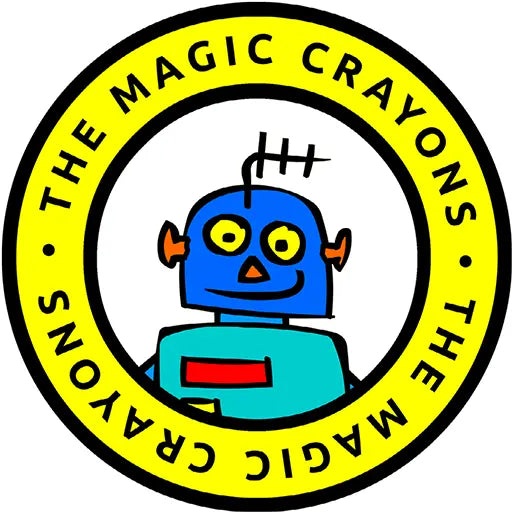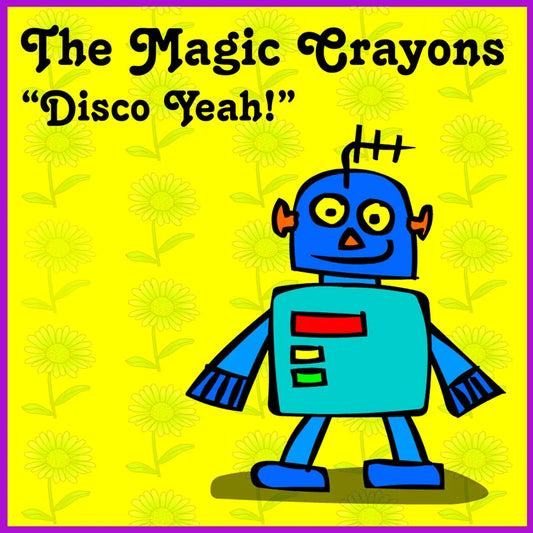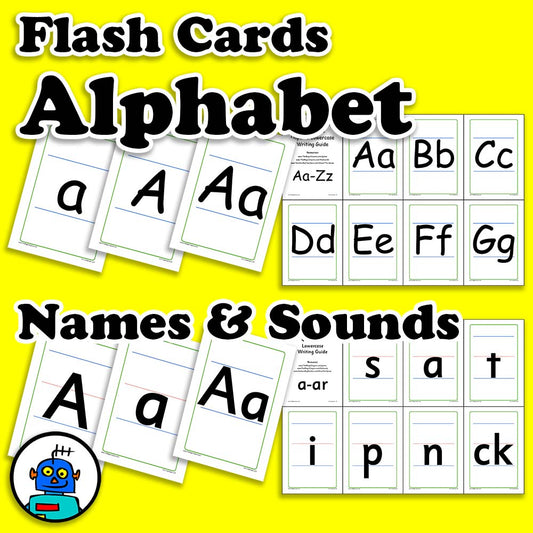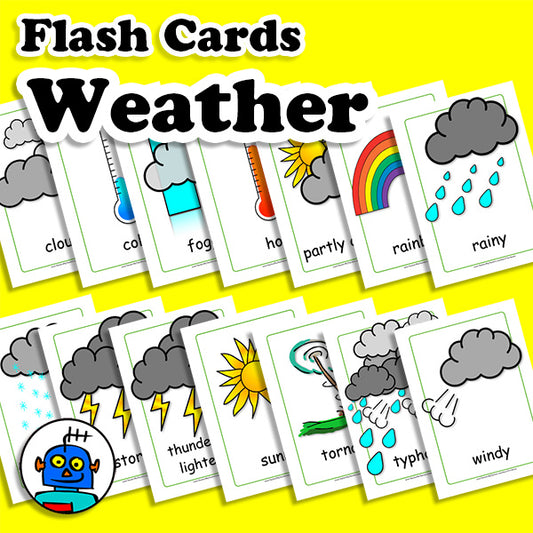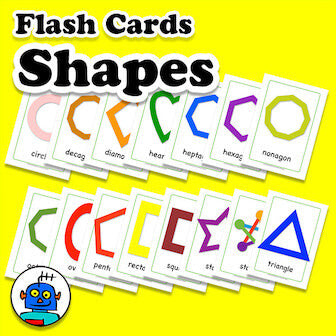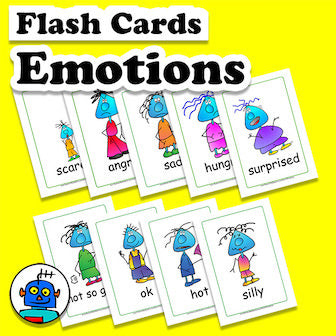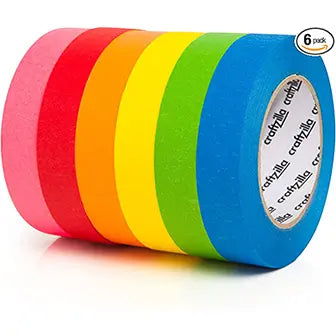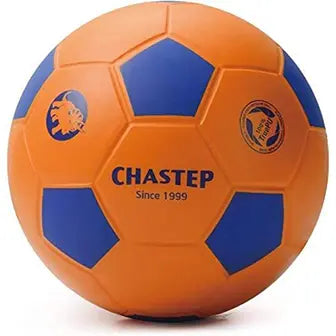>Games >Animals Games
-
1. Crazy Tiger Game
Resources
- Animal Flash Cards
- Animal Songs
Students make a circle. Put some of the animals cards, including the tiger card, face down in the middle.
-
2. Animal Nose
Resources
- Animal Flash Cards
- Animal Songs
- Small White Dry Erase Boards (Amazon #Ad)
- Colour Dry Erase Markers (Amazon #Ad)
Time: 10 minutes
Receptive Language: instructions, facial vocabulary, animals (or family)
Productive Language: facial vocabulary, animals (or family, etc), directions
Game Explanation: Draw an animal (or family member) without a nose on the whiteboard (this presents a good opportunity to introduce or review facial vocabulary: eyes, ears, mouth, etc). Show the students that the animal is very unhappy without a nose. Blindfold one student and give her a magnet (the animal’s nose). The other students in the class shout directions (up, down, left, right, ok) to the blindfolded student so that she can put the nose in the correct location. Variations include having the blindfolded students draw the nose and other facial features. This game can also be played in teams, with the winning team having drawn the best (i.e. least disfigured) animal.
-
3. Variation of Animal Boogie
Resources
- Animal Flash Cards (Summer 2023)
- Animal Songs
-
How to play
Shuffle animal cards and pretend to be the animal that comes up. Students guess the animal.
Repeat several times, make funny noises etc..
Once students understand the (few) rules than choose well behaved students to act out the animal
-
4. All In All
Resources
- Animal Flash Cards
- Animal Songs
How to play
Review the current unit cards. Two teams. The first student on Team A names any cards from the unit currently being studied, followed by the first student on Team B, & so on. The goal is to remember and say every card in the unit. The team with the most cards wins.
Note: You will probably be required to help the students out with hints, particularly near the end of this activity. Insist that the students ask you - ‘Hint, please!’ - before doing so. -
5. Blindfold
Resources
- Animal Flash Cards
- Animal Songs
How to play
Time: 5-10 minutes
Language: numbers, animal vocab, forward, left, right, up, down, stopTwo teams. Draw an animal on the whiteboard for each team (or let the students do this part for you). Draw a concentric-circle target on each animal and label each ring with a numerical point value. One student from each team is then blindfolded, given a marker, and given instructions on how to hit the target. Make sure that the students understand that instructions in Japanese will result in point deductions from their team’s score.
-
6. Beastwar
Resources
- Animal Flash Cards
- Animal Songs
How to play
Review the animal cards & have each student select an animal they'd like to be. On a large sheet of paper, each student draws their animal somewhere near the edge.
Go first to demonstrate. Each animal can move 5 spaces (each space represented by a dash) in any direction, & can 'shoot' at any other animal after moving.
To shoot, place the point of the pencil anywhere on the animal (which you'll have to redraw each turn after moving the 5 spaces), place your finger on the top of the pencil, & push down so that the pencil point streaks a 'shot' across the paper at one of your foes.
If you manage to hit another animal, it's dead & is erased after being covered in hastily drawn gore.
Play continues until only one animal - the 'Beastmaster' - remains.
Note: This game is easily modified to fit virtually any unit. Insist on standardised sizes for the dashes & the animals or you’ll be sorry. -
7. Animal Quiz
Resources
- Animal Flash Cards
- Animal Songs
How to play
Time: 5-6 minutes
Divide the class into two teams, assign each team a name, & review the animal cards. Shuffle the cards & have the students yell out ‘Stop!’ Without revealing the card, make a sound or gesture that represents the animal on the card you’ve stopped at. The first team to correctly identify the animal gets a point. Continue for as long as this is entertaining for the students.
Animal Theme Resources
-
IB Learner Attributes Posters, Animals Theme. Digital Download.
Vendor:The Magic CrayonsRegular price $4.00 USDRegular priceUnit price per -
Animals Wa Wa Wa. English Song About Animals
Vendor:The Magic CrayonsRegular price $0.99 USDRegular priceUnit price per -
The Magic Crayons, Disco Yeah! Album, Digital Download. Original Children's Songs
Vendor:The Magic CrayonsRegular price $15.84 USDRegular priceUnit price per -
Beastie Noise. English Song about Animals
Vendor:The Magic CrayonsRegular price $0.99 USDRegular priceUnit price per
-
8. Animal Commando
Resources
- Animal Flash Cards
- Animal Songs
How to play
Review the FCs. Introduce an action (and sound where appropriate) for each animal- either of your own or have the children choose one. have the children perform the actions when you call out an animal- include "stop" and have everyone freeze between actions. Finish with a kind of reversal where you perform the action and the children guess which animal.
-
9. Spider Attack
Resources
- Animal Flash Cards
- Animal Songs
How to play
Receptive Language: instructions, ‘Spiderpose!’
Productive Language: target vocab, ‘Stop!’
Time: 5 minutesReview the animal flashcards & separate class into two teams (boys vs. girls). Line up each team on either side of the room & have them sit down. Make a line with tape or place a chair in the middle of the room as the Goal. Shuffle the flashcards & have the students say ‘Stop!’ Do a quick or slow reveal of the card. The first team to answer correctly stands up & takes one step together toward the goal. The first team to cross the goal/touch the chair is the winner. Show the winning team the spider card. Have the team make a spider pose &, on your command, attack the losing team with a deadly spider attack.
Note: some students may cry. Keep this in mind while deciding just how ferocious your Spider Attack should be.
-
English Alphabet Phonics Flash Cards | 16 Sets | Digital Download
Vendor:The Magic CrayonsRegular price $3.00 USDRegular priceUnit price per -
English Weather Flash Cards | Digital Download
Vendor:The Magic CrayonsRegular price $3.00 USDRegular priceUnit price per -
English Shapes Flash Cards, Digital Download
Vendor:The Magic CrayonsRegular price $3.00 USDRegular priceUnit price per -
English Emotions Flash Cards | Digital Download
Vendor:The Magic CrayonsRegular price $3.00 USDRegular priceUnit price per
-
10. Mr. Donuts
Resources
- Animal Flash Cards
- Flash Cards to Review
-
How to play
Time: 5-8 minutes
Receptive Language: instructions, flashcard vocab, ‘animal’
Productive Language: flashcard vocabStudents sit in a circle with a card pool of mixed animal & non-animal cards in the middle. Demonstrate that, one by one, the students will turn over a card, identify it, & place it in a pile in the centre of the card pool.
If an animal card is turned over, all of the students must put their hands on the pile. The last student to do so - i.e., the student left with his hand on top of the pile of hands on top of the pile of cards - must collect all of the cards in the pot.
The student with the lowest number of cards in hand at the end of the game is the winner. As a variation, whoever turns over an animal card must attempt to tag the other students before they can touch one of the classroom walls; whoever’s caught get hits with a hammer, punched out, must collect all of the cards in the pot, etc etc.
-
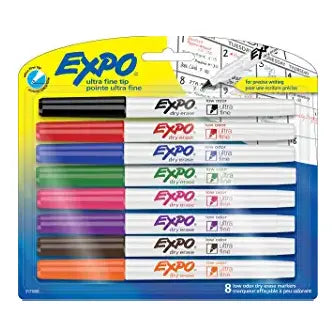
-
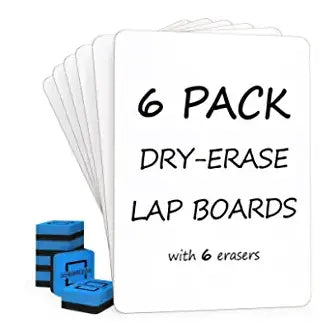
-

Small Chalk Board with Colored Chalk
View in Amazon15 x 12" + 1 Magnetic Chalk Eraser, 14 Chalk Sticks (7 Colors) and 2 Magnets
-

-
11. Animal Interview
Resources
- Animal Flash Cards
How to play
Select a few kids to stand with you before the rest of the class. Have them choose an animal to represent. Ask each one a question that provides the class with clues as to which animal they are. An exchange with a group who has chosen 'rabbit' might go: "What colour are you?" "I'm white." "What's your favourite food?" "I like carrot." "Are your ears big or small?" "Big"
First person to answer correctly gets to be next (if they want to, if not just ask for volunteers). Food and colour FCs will probably prove useful in prompting the interviewees. Also, it's a good idea to make an answer pool for the students trying to guess the animal. -
12. Action Goose
Resources
- Animal Flash Cards
How to play
A variation of duck duck goose. The kids call out the different kind of sport f/c's. Ex: Rugby, Rugby, Rugby.......Basketball!!!!! The difference is that before they begin, show them the run, hop, or walk f/c. They can't run every time. They have to do the right action.
-
13. Animal Crawl
Resources
- Animal Flash Cards
How to play
Class size: whole class
Set up: Divide class evenly into 2-5 teams depending on class size. Have them line up at one end of the room. Put the FC at the other end of the room. Have the first member of each team line up down on all fours, like a cat or a dog.
After you call out a card name or make an animal sound the children have to crawl along the ground and touch the correct card. The winner keeps the card for his or her team. Repeat until everyone has had a turn and then declare a winning team. Sub in review cards if there is not enough animal FC..
If you want to play with Nen Sho students let all the children touch the FC after crawling to the other side. Don't have any winners and don't give the cards to any of the teams. -
14. What's That Sound
Resources
- Animal Noises Book (Amazon #Ad)
- 10% Off the Animal Noises book. Add The Magic Crayons discount code to Amazon checkout: BOXIKI10
How to play
Basically a modification on the standard “race to the card” game. Play an animal sound from the animal noises book. In teams, students race to touch or grab the animal card that they just heard. Can also be used for Nen-sho as a four corners type game.
-
15. Pictionary
Resources
- Animal Flash Cards
- Small White Dry Erase Boards (Amazon #Ad)
- Colour Dry Erase Markers (Amazon #Ad)
- Mini Chalk Board with Colored Chalk Markers (Amazon #Ad)
How to play
Review cards. Call out a boy and "shuffle shuffle" the cards until the class calls out "stop!" Secretly show the one boy only, and get him to draw the animal up on the board. If the class can guess what it is, he scores a point for the boys team. Next call up a girl and repeat. Top tip - cheat horrendously by "accidentally" showing the class the card when you turn around or scratch your ear or something, that way you can keep things balanced.
-
16. Where are the animals
Resources
- Animal Flash Cards
- Other Flash Cards to Review
How to play
Divide the class into two even lines and sit them facing each other. If you have an odd number of students have the Japanese teacher play. Give one card to each student, 5 animal and the rest random cards. Start at one end of the room and, alternating between the lines, have each students call on one of the other team members to reveal their card. Collect the cards as you go. The first team to find all the animals wins.
-
17. Animal Boogie
Resources
- None
-
How to play
Time: 3-5 minutes
Receptive Language: animals
Productive Language: none
Game Explanation: Have the children walk around, clockwise, in a big circle. Call out an animal: ‘Elephant!’ The students must stop marching, turn around in a 360 degree circle, and continue moving clockwise around the circle, only now imitating the animal that you’ve called out. Continue with various different animals.
-
18. Keith Richards
Resources
- Animal Flash Cards
- Animal Sounds Book (Amazon #Ad)
- Other Flash Cards to Review
How to play
Materials needed: Animal Flash Cards and CD
Two teams - boys vs. girls. Have them in straight lines please.
Intro cards. Let's Play A Game!!!!! Play a sound effect from the cd. Start with an easy one like dog or cat. First child to guess the animal gets the point for their team. Rinse and repeat and the champion team meets Keith Richards.
-
19. Evolution
Resources
- Animal Flash Cards
- Animal Sounds Book
- Small White Dry Erase Boards ( Amazon #Ad)
- Colour Dry Erase Markers (Amazon #Ad)
- Mini Chalk Board with Colored Chalk Markers (Amazon #Ad)
How to play
Time: 8-10 minutes
Receptive Language: instructions, flash card vocab, rock scissors paper
Productive Language: flash card vocab, rock scissors paper
Using the flash cards &/or the whiteboard, demonstrate an ‘evolutionary scale’ to the students, using whatever cards you want to focus on (mouse-dog-horse-elephant, bicycle-car-bus-airplane, etc). All students begin on the lowest stage of the scale (have them perform specific gestures for each stage).
Play some music, clap, or command the students to run/walk around the room. When you yell ‘Stop!’ the students form pairs & play rock-scissors-paper (you may want to get them to practice a simple conversation pattern like ‘Hello, how are you?’ ‘I’m great, thank you’ before they do rsp).The winner in each pair evolves to the next stage, while the loser stays the same. Make sure the students understand that only members of the same evolutionary stage can battle each other, & repeat. Once students have evolved off the scale (to a supernatural being, perhaps? or a supernatural vehicle/sandwich/item of clothing etc), they’re finished & get to sit down. Continue for as long as it’s fun.
Note: You’ll probably need to enlist the aid of the Japanese teacher to ensure that the students play this game properly, especially with large classes.
-
20. Animal Circle
Resources
- Animal Flash Cards (one for each student)
How to play
Time: 6-8 minutes
Receptive Language: instructions, flashcard vocab, ‘What’s your favourite animal?’, ‘I like...’
Productive Language: ‘I like...’, flashcard vocab
Game Explanation: Place the cards in a circle & have each student stand next to a card. Play some music & demonstrate that while the music is playing the students are to walk around the circle, & when you stop the music they’re to stand next to the animal card closest them. Start & then stop the music. When all of the students are (finally) standing next to an animal card, ask the Japanese teacher ‘What’s your favorite animal?’ With any luck the teacher will respond with ‘I like [animal represented on flashcard].’ The student standing next to that animal card is out & has to sit down. Remove his animal card from the circle & repeat, asking him the next time you stop the music what his favourite animal is. Continue until only one student remains.
Note: Will this game turn into a revenge fantasy/popularity contest? You bet!
-
21. Evolution Pokemon crazy Exciting Janken
Resources
- None
How to play
ut some cards up on the board in a weakest to strongest order while modelling and practising actions for all.
For example... Nen Sho -> fly < mouse < cat < dog < elephant
The kids all start as flys .. they buzz about the room until the Daft Punk stops and then have to form pairs and janken (can be tricky but try to make sure they all understand they only janken once). Then line up champions and non champions. The champions are now mice. Congratulations. They get to squeak around while the lowly flys must still buzz.
Rinse and repeat until you get some elephants, using "One time champion"->mice "two times champion"->cats - the kids get what that means.
Like it? Share it!
Best selling gifts
-
Backhoe Trucker Cap, Adult C004
Vendor:The Magic CrayonsRegular price $30.00 USDRegular priceUnit price per -
Personalized Yellow 8-Wheeled Crane Mug
Vendor:The Magic CrayonsRegular price From $20.00 USDRegular priceUnit price per -
Unisex Hypoallergenic Cuffed Beanie with Embroidered Forklift - Perfect for Drivers and Operators
Vendor:The Magic CrayonsRegular price $27.50 USDRegular priceUnit price per -
Forklift Certified Trucker Hat In 13 Colors
Vendor:The Magic CrayonsRegular price $30.00 USDRegular priceUnit price per
